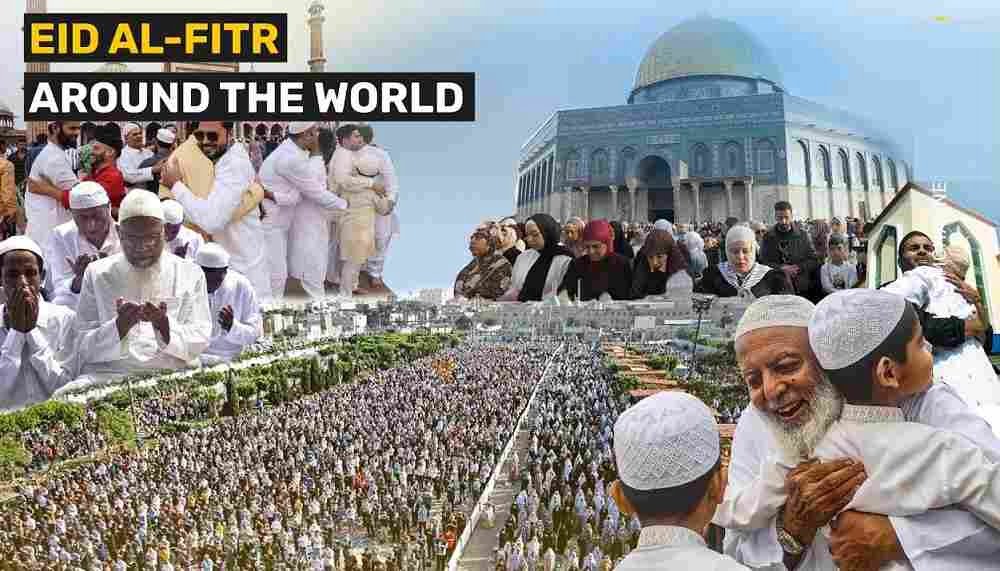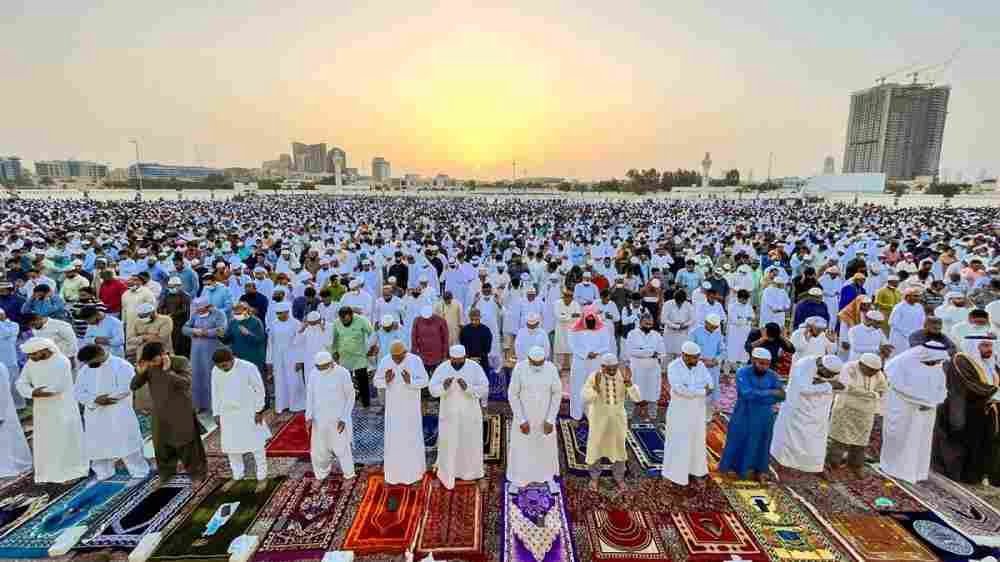
Eid-al-Fitr : Meanings and Importance
Eid-al-Fitr is the end of the holy month of Ramadan. It is celebrated on the last day of the Islamic lunar calendar year, which falls on August 1st this year. The word “Fitri” means to free from something. So it’s believed that if you do good deeds in this period then God will forgive you for anything you did before.
During this occasion Muslims all over the world celebrate with their families. Many people go to mosque and offer prayer, while others visit graves of the Prophet Muhammad (peace be upon him) and his family members. They also share food and spend time together.
A lot of traditional dishes are served during the celebration. There is a common belief among many Muslims that they can’t eat or drink until after sunset. But when Ramadan ends, Muslims can enjoy themselves.
- Check this Also: List of Public Holidays
- Check here Also: Install Mobile App for Online Preparation Tests
What is Eid-al-Fitr?
Eid-al-Fitr means “Festival of Breaking the Fast.” This festival falls on the end of Ramadan, the Muslim holy month. During this time, Muslims fast from sunrise to sunset each day.
Muslims believe that Allah (God) sent Prophet Muhammad as a messenger to mankind. He taught them how to worship God. The Quran says, “O ye who have believed, fasting has been prescribed for you as it was prescribed to those before you, so that you may become aware.”
On the last day of Ramadan, all Muslims celebrate by breaking their daily fast. When they break their fast, they eat food and drink water.
They also thank Allah for His mercy and forgiveness. In addition, people pray, read the Quran, give charity, visit family, and spend time with friends and relatives.
Eid-al-Fitr Meaning
The term “Eid” refers to a celebration that occurs at the end of the fasting period of Ramadan. During this time, people refrain from eating, drinking, smoking, or having sex.
Eid-al-Fitr is a holiday that marks the end of Ramadan. It also celebrates the beginning of summer. The word “fitr” means “beginning.” This is why the name of this festival translates to “the beginning of (or the first day) of the feast of breaking the fast”.
Muslims celebrate the end of the holy month of Ramadan by giving gifts and food to their family members. Muslims also attend special prayers on the last day of Ramadan, known as Eid al-Fitr. In addition, people visit each other’s homes to share meals and give presents.

Eid-al-Fitr: Concept in Islam
Eid-al-Fitr (the feast of breaking the fast) marks the end of Ramadan, the holy month of fasting. The Qur’an states that this day should be marked by joy, happiness, and gladness, and Muslims celebrate with feasting.
In the Islamic tradition, the first two days of Eid are considered “extra” holidays. This means that people who are able to afford it take the time off work to spend the entire holiday celebrating. For others, they simply eat a big meal.
During the last ten nights of Ramadan, all of the food and drinks that one consumes must be completely forbidden. However, on the final night of the holy month, there is no restriction placed on eating and drinking.
A few other traditions are also observed during this time. Many families visit relatives and friends, and some people go camping or hiking.
The most important aspect of Eid-al-Fitr is that it reminds everyone of the importance of Allah.
Eid-al-Fitr Concept in Other Religions
Eid Al-Fitr is the most important festival of Muslims. This day marks the end of Ramadan, the holy month of fasting for all Muslims. During this time, people fast from dawn to dusk, abstaining from eating, drinking, smoking, etc.
In addition to being a religious holiday, Eid-al-Fitr also represents the start of spring. The weather begins to warm up, and people enjoy spending more time outside. This is why many people celebrate by getting together with family and friends.
Muslims around the world gather in mosques to pray on this special day. For example, people in Malaysia and Indonesia will be celebrating their holidays at the same time.
During the month of Ramadan, Muslims are required to observe the strictest form of abstinence from food, water, and sex. At this point, they’ll have been fasting for nearly a week.
Eid-al-Fitr in Other Cultures
Eid-al-Fitr is one of the most important holidays to Muslims. This holiday marks the end of Ramadan, the month long period of fasting that all practicing Muslims must observe.
In the Islamic faith, Eid-al-Fitr celebrates the completion of the holy month of Ramadan. The first day of Eid, known as Eid Miladun Nabi (the birthday of Prophet Muhammad), also marks the beginning of the celebration of this holiday.
On the last day of the month of Ramadan, Muslims celebrate with the breaking of fasts and the exchange of gifts.
It’s a time for family and friends to come together and share their love for each other. People visit one another’s homes and make new friends.
During the month of Ramadan, people abstain from eating, drinking, smoking, sexual activity, and any type of work.
However, on the last day, everyone breaks his or her fast at sunset.
Eid-al-Fitr Importance
Eid-al-Fitr is the holiday that marks the end of Ramadan, the holy month of fasting in the Islamic faith.
It’s a special time when Muslims celebrate the completion of their fast. While the celebration of the festival varies from country to country, the general idea behind the festivities remains the same. The main goal of the occasion is to give thanks to God for the blessings received throughout the past 30 days.
This year, Eid-al-Fitr also coincides with the birthday of Prophet Muhammad (peace be upon him). So, the celebrations will include various activities that honor this great man.
Eid-al-Fitr: Conclusion
This holiday is also known as the Festival of Sacrifice. When the Prophet Muhammad (PBUH) declared the first Islamic Holy Month of Ramadan, he asked his followers to sacrifice themselves for the sake of Allah. He told them that they would be rewarded with eternal life in heaven.
Many people think that the name of this holiday comes from the fact that it was the first time that the Muslim community celebrated the end of the month of Ramadan. However, there is another story about the origin of the term.






